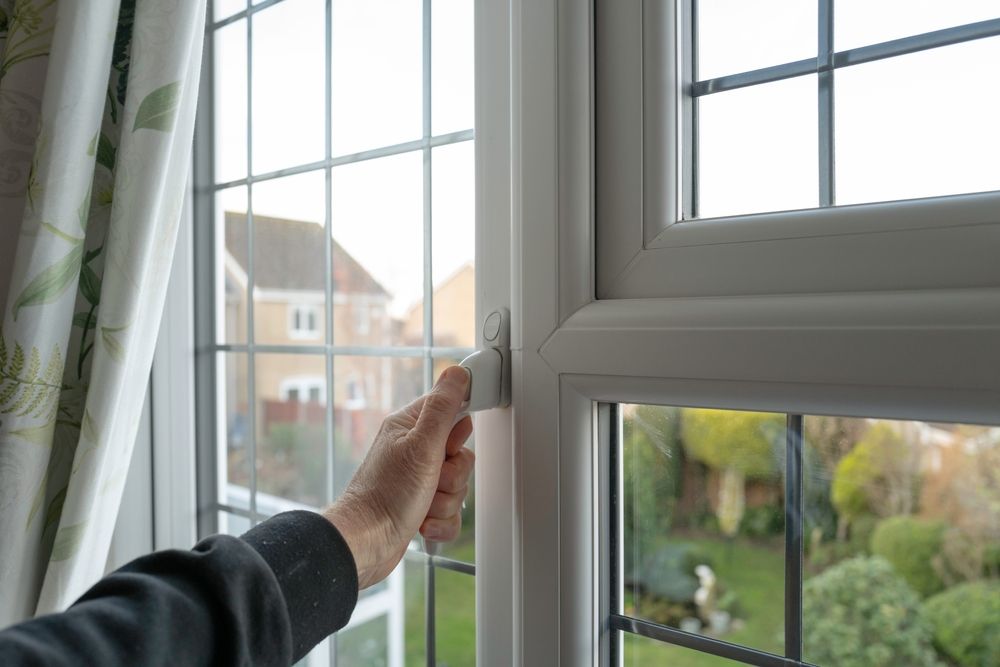Home security is a top priority for many homeowners, but the cost of high-end security systems can be prohibitive. The good news is that protecting your home doesn't have to be expensive. With some strategic planning and smart choices, you can enhance your home's security without putting a strain on your budget. This article explores practical, cost-effective tips to safeguard your home and provide peace of mind.
1. Assess Your Current Security Measures
Why It Matters:
Understanding your home's vulnerabilities is the first step toward improving security.
How to Implement:
- Conduct a Walkthrough: Examine all entry points, including doors, windows, and garages.
- Identify Weak Spots: Look for overgrown shrubs, dark areas, or outdated locks.
- Make a Checklist: Note areas that need attention for targeted improvements.
Tip: Involve family members to get different perspectives on potential security issues.
2. Improve Exterior Lighting
Why It Matters:
Well-lit exteriors deter intruders by eliminating hiding spots.
How to Implement:
- Install Motion-Sensor Lights: Place them near entrances and dark corners.
- Use Solar-Powered Lights: An energy-efficient option that reduces electricity costs.
- Illuminate Pathways: Ensure walkways and driveways are well-lit for safety.
Tip: Regularly check and replace bulbs to maintain consistent lighting.
3. Reinforce Doors and Windows
Why It Matters:
Doors and windows are the most common entry points for burglars.
How to Implement:
- Upgrade Locks: Install deadbolts on exterior doors and secure window locks.
- Use Door Reinforcement Plates: Strengthen door frames against forced entry.
- Install Window Bars or Grilles: Particularly for basement and ground-level windows.
Tip: Consider adding a peephole or a wide-angle door viewer for added security.
4. Install DIY Security Systems
Why It Matters:
Affordable technology has made it easier to monitor your home without professional installation.
How to Implement:
- Choose Wireless Systems: Easy to install and can be moved if you relocate.
- Utilize Smart Home Devices: Cameras, doorbell cameras, and smart locks controlled via smartphone.
- Look for No-Monthly-Fee Options: Some systems offer free basic monitoring.
Tip: Research user-friendly systems with good customer reviews to ensure reliability.
5. Maintain Your Landscaping
Why It Matters:
Overgrown bushes and trees can provide cover for intruders.
How to Implement:
- Trim Shrubs Near Windows and Doors: Reduce hiding spots close to entry points.
- Use Thorny Plants: Plant bushes like roses or holly under windows to deter access.
- Maintain a Clear Yard: Remove ladders, tools, or objects that could aid in breaking in.
Tip: Regularly schedule yard maintenance to keep the exterior tidy and secure.
6. Secure Your Wi-Fi Network
Why It Matters:
An unsecured Wi-Fi network can give cybercriminals access to your personal information and smart home devices.
How to Implement:
- Change Default Passwords: Use strong, unique passwords for your router and connected devices.
- Enable Encryption: Use WPA3 or WPA2 encryption for your Wi-Fi network.
- Create a Guest Network: Keep your primary network private by providing guests with a separate network.
Tip: Regularly update your router's firmware to protect against vulnerabilities.

7. Get to Know Your Neighbors
Why It Matters:
A connected community enhances overall security through mutual vigilance.
How to Implement:
- Introduce Yourself: Build relationships with neighbors.
- Join or Start a Neighborhood Watch Program: Collaborate on keeping the area safe.
- Communicate Regularly: Share contact information and discuss any suspicious activities.
Tip: Use neighborhood apps or social media groups to stay connected and informed.
8. Use Timers for Lights and Electronics
Why It Matters:
Making your home appear occupied can deter potential burglars.
How to Implement:
- Install Light Timers: Program indoor and outdoor lights to turn on and off at various times.
- Automate Electronics: Use timers for TVs or radios to simulate occupancy.
- Consider Smart Plugs: Control devices remotely via smartphone apps.
Tip: Vary the schedule to avoid creating a predictable pattern.
9. Hide Valuables from Sight
Why It Matters:
Visible valuables can tempt burglars to target your home.
How to Implement:
- Use Window Coverings: Install curtains or blinds and keep them closed when necessary.
- Store Valuables Securely: Keep expensive items out of sight from windows and doors.
- Discreet Trash Disposal: Break down boxes from expensive items before discarding them.
Tip: Avoid posting about new purchases or travel plans on social media.
10. Secure Sliding Doors and Windows
Why It Matters:
Sliding doors and windows can be easy entry points if not properly secured.
How to Implement:
- Install Slide Locks or Bars: Place a dowel or metal bar in the track to prevent opening.
- Use Window Security Film: Apply shatter-resistant film to prevent glass from breaking easily.
- Upgrade to Impact-Resistant Glass: Consider stronger glass options for vulnerable areas.
Tip: Regularly check the condition of locks and tracks for signs of wear.
11. Display Security Signs
Why It Matters:
Visible signs can deter criminals by indicating that security measures are in place.
How to Implement:
- Use Security Company Signs: Even if you don't have a system, signs can act as a deterrent.
- Place Decals on Windows: Display stickers indicating alarms or surveillance.
- Combine with Other Measures: Signs are more effective when actual security measures are in place.
Tip: Ensure signs are visible from the street and near entry points.
12. Practice Regular Safety Habits
Why It Matters:
Simple daily practices can significantly enhance your home's security.
How to Implement:
- Lock Doors and Windows: Always secure entry points, even when you're home.
- Don't Hide Spare Keys Outside: Instead, leave a key with a trusted neighbor.
- Change Locks When Necessary: After moving in or losing a key, update your locks.
Tip: Involve all household members in maintaining these habits for consistent security.
13. Use Affordable Alarm Systems
Why It Matters:
Budget-friendly alarm options can alert you to intrusions without high costs.
How to Implement:
- Door and Window Alarms: Install battery-operated alarms that emit a loud sound when triggered.
- Personal Alarms: Keep portable alarms handy for emergencies.
- DIY Installation: Save money by installing alarm systems yourself.
Tip: Test alarms regularly to ensure they are functioning properly.
- Consider Community Resources
Why It Matters:
Local resources may offer free or low-cost security assistance.
How to Implement:
- Police Department Services: Some offer home security assessments or neighborhood patrols.
- Community Grants: Look for local programs that fund security improvements.
- Workshops and Seminars: Attend events to learn more about home security strategies.
Tip: Stay informed about community meetings and resources available in your area.
Protecting your home doesn't require a significant financial investment. By implementing these cost-effective strategies, you can enhance your home's security and deter potential intruders. Remember that the key to effective home security is consistency and vigilance. Regularly assess your home's security measures, stay informed about best practices, and involve your family and community in creating a safe environment. With thoughtful planning and proactive steps, you can enjoy peace of mind without breaking the bank.




